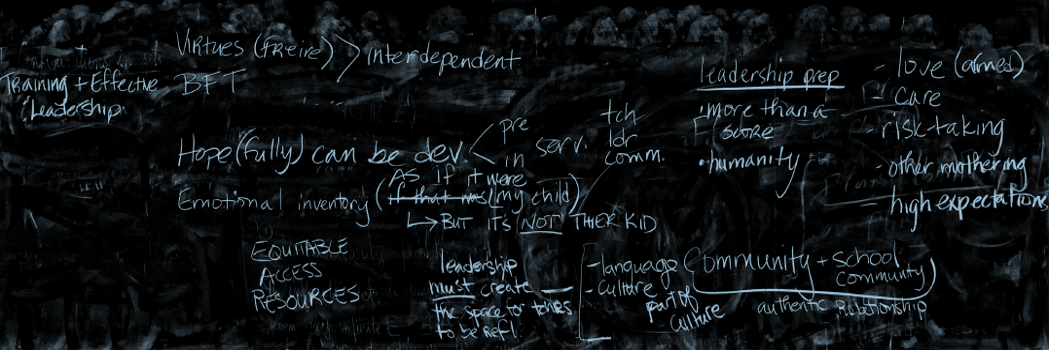Reading about SFSJ and Johnson’s leadership has left me feeling INSPIRED. The shift towards a radical care, a care that encompasses the tenets of critical care along with a radical hope seems to be ingredients for true and lasting change. How can we fight for sustained change if we can’t envision it? If we can dream of it? “Since Johnson viewed the education landscape as full of possibilities for liberation of marginalized communities, he was less inclined to feel constrained by policy and context than others might… Having a firm vision in “what could be,” therefore, drove Johnson to believe that anything was possible; rather than seeing constraints, he was solution-oriented… It is essential, then, that the school leader maintains a level of intense and almost unbelievable optimism if they are to lead” (Rivera-McCutchen, 2020). These three quotes really stuck out to me because they are powerful examples of the authentic and radical care that seemed to drive Johnson’s vision and leadership. From his “Johnson Bulletins” to the Community Circles to Johnson’s presence in the school and relationships with students, families and staff, this vision and commitment to hope, social justice and change seemed to be so embedded and genuine. The article speaks about Johnson’s support of his teaching staff and how he showed them care similarly to how he showed care to his students and their families. “Johnson came to understand that he needed to actively support teachers in order to help the students achieve success. He admitted to me that he was beginning to recognize that encouragement, alone, was insufficient” (Rivera-McCutchen, 2020). This quote and his commitment to supporting his school community left me wondering who supports him and how he receives care. One idea that came to mind was the reciprocal relationship he seemed to foster with his school community, but I wondered how someone with his incredible energy and commitment receives and is cared for to sustain that energy. I wonder how school leaders in general receive adequate support and care and if the lack of care for leaders could be contributing to the high turnover rates of leaders in the urban context. How can we foster more school communities by actively caring for more leaders like Johnson?
Radical Care Sp21
Teaching & Leading for Justice in Schools




hi Lindsay: I love your thoughtful and multi-faceted response. Your question about who supported Johnson throughout his efforts to support his students, their families, and his staff is such a great one–I hope you will ask him when we get a chance to hear his perspective in tonight’s class. Looking forward to reconnecting with you and others in a few hours…Fondly, Jane